Sous-total : 17,450CFA
Bee Pollen 1000mg
1 en stock
- Régulateur de pression artérielle et peut renforcer le système cardiovasculaire
- Un antibiotique contre la typhoïde et la salmonelle
- Augmente la vigilance mentale
- Pour lutter contre la diarrhée et améliorer la digestion.
- Lire la suite
20,550CFA
1 en stock
POLLEN D'ABEILLE
Le pollen d'abeille contient tous les nutriments nécessaires pour maintenir la vie.
Avantages:
- Pression artérielle régulateur et peut renforcer le système cardiovasculaire
- Un antibiotique contre la typhoïde et la salmonelle
- Augmente la vigilance mentale
- Pour lutter contre la diarrhée et améliorer la digestion
- Les athlètes utilisent souvent le pollen d'abeille pour l'endurance, la force, l'endurance et la clarté mentale.
- Renforce la fonction immunitaire
- Détoxifie le corps
- Régulation de l'appétit dans l'anorexie et l'obésité
- Éliminer les sensations de fatigue, de fatigue, de faiblesse cérébrale et musculaire
Le pollen est la graine mâle des fleurs. Il est nécessaire à la fertilisation de la plante. Les minuscules particules sont constituées de corpuscules de 50/1 000 millimètres, formés à l'extrémité libre de l'étamine au cœur de la fleur. Chaque variété de fleurs dans l'univers met en avant une poussière de pollen. De nombreux fruits du verger et cultures vivrières agricoles le font aussi.
Bee pollen is the food of the young bee and it is approximately 40% protein. It is considered one of nature’s most completely nourishing foods. It contains nearly all nutrients required by humans. About half of its protein is in the form of free amino acids that are ready to be sued directly by the body. Such highly assailable protein can contribute significantly to one’s protein needs.
La cueillette pollen n'est pas aussi facile qu'il y paraît. Une fois qu'une abeille arrive à une fleur, elle s'installe et gratte avec agilité le pollen en vrac poudreux de l'étamine avec ses mâchoires et ses pattes avant, l'humidifiant avec une noisette du miel qu'elle a apporté avec elle de la ruche. Les segments tarsiens agrandis et élargis de ses pattes ont une épaisse garniture de poils, appelés rayons à pollen.
The bee uses these combs to brush the gold powder from her coat and legs in mid-flight. With a skillful pressing movement of her auricle, which is used as a hammer, she pushes the gathered gold into her baskets. Her pollen baskets, surrounded by a fringe of long hairs, are simply concave areas located on the outside of her tibias. When the bee’s baskets are fully loaded, the microscopic golden dust has been tamped down into a single golden grain, or granule.
One of the most interesting facts about bee pollen is that it cannot be synthesized in a laboratory. When researchers take away a bee’s pollen-filled comb and feed her manmade pollen, the bee dies even though all the known nutrients are present in the lab-produced nourriture synthétisée. Many thousands of chemical analyses of bee pollen have been made with the very latest diagnostic equipment, but there are still some elements present in bee pollen that science cannot identify. The bees add some mysterious “extra” of their own. These unidentifiable elements may very well be the reason bee pollen works so spectacularly against so many diverse conditions of ill health.
Honeybees do double duty. They are programmed to gather pollen and carry it back to the hive as food for the colony. However, even more important as far as humans are concerned, they are also responsible for the pollination of more than 80 percent of green growing things. As bees buzz from blossom to blossom, microscopic pollen particles coat their stubby little bodies so densely that they sometimes look like little yellow fuzz balls. When they arrive at the next flower, a portion of the live golden dust is transferred to that blossom and pollination is accomplished. It is important to recognize that a one-teaspoon dose of pollen takes one bee working eight hours a day for one month to gather. Each bee pollen pellet contains over two million flower pollen grains and one teaspoonful contains over 2.5 billion grains of flower pollen.
En fait, des études ont montré que des générations de souris sont nées et ont vécu exclusivement de pollen d'abeille, sans aucun signe de malnutrition. Le pollen d'abeille contient les 22 nutriments nécessaires pour équilibrer la nutrition.
Composition: Le pollen d'abeille contient du bêta-carotène, de la vitamine B1, de la vitamine B2, de la vitamine B3, de la vitamine B5, de la vitamine B6, de la vitamine B12, de la vitamine C, de la vitamine D, de la vitamine E, de la vitamine H, de l'acide folique, de l'acide pantothénique, de la vitamine K, du phosphore, du nickel, du bore , Zinc, Titane, Sodium, Soufre, fer, cuivre, calcium, potassium, manganèse, 12 acides gras insaturés différents, stéroïdes de croissance, acides aminés, lécithine, acides nucléiques, caroténoïdes d'acide phénol et flavonoïdes. Il contient également de la biotine, une vitamine importante pour la peau, les cheveux et les ongles. Sa composition est la suivante : environ 35% de protéines (le pollen d'abeille est plus riche en protéines que toute autre source animale. Il contient plus d'acides aminés que le bœuf, les œufs ou le fromage de poids égal), 55% de glucides, 2% d'acides gras et 3% de minéraux et vitamines.
According to researchers at the Institute of Apiculture, Taranov, Russia, “Honeybee pollen is the richest source of vitamins found in Nature in a single food. Even if bee pollen had none of its other vital ingredients, its content of rutin alone would justify taking at least a teaspoon daily, if for no other reason than strengthening the capillaries. Pollen is extremely rich in rutin and may have the highest content of any source, plus it provides a high content of the nucleic RNA [ribonucleic acid] and DNA [deoxyribonucleic acid].”
- Nutrition complète :
Bee pollen contains all the essential components of life. The percentage of rejuvenating elements in bee pollen remarkably exceeds those present in brewer’s yeast and wheat germ. Bee pollen corrects the deficient or unbalanced nutrition, common in the customs of our present-day civilization of consuming incomplete foods, often with added chemical ingredients, which expose us to physiological problems as various as they are numerous.
Le pollen est considéré comme un tonique énergétique et nutritif en médecine chinoise. Les cultures du monde entier l'utilisent dans un nombre surprenant d'applications: pour améliorer l'endurance et la vitalité, prolonger la longévité, aider à la guérison d'une maladie chronique, ajouter du poids pendant la convalescence, réduire les fringales et les addictions, réguler les intestins, construire du sang neuf, prévenir les maladies infectieuses telles comme le froid et la fumée (il a des propriétés de type antibiotique), et aide à surmonter le retard et d'autres problèmes de développement chez les enfants. On pense qu'il protège contre les radiations et possède des qualités anticancéreuses.
- Antibiotique naturel :
Les chercheurs ont démontré qu'il existe une substance dans le pollen d'abeille qui inhibe le développement de nombreuses bactéries nocives. Des expériences ont montré que le pollen d'abeille contient un facteur antibiotique efficace contre les salmonelles et certaines souches de bactéries. Sur le plan clinique, des études ont montré qu'un effet régulateur sur la fonction intestinale peut être attribué au pollen d'abeille. La présence d'une forte proportion de cellulose et de fibres dans le pollen, ainsi que l'existence de facteurs antibiotiques, contribuent à expliquer cet effet efficace.
- Aide l'anémie :
Travailler avec des animaux de laboratoire a démontré que l'ingestion de pollen d'abeille a un bon effet sur la composition du sang. Une augmentation considérable et simultanée des globules blancs et rouges est observée. Lorsque le pollen d'abeille est administré à des patients anémiques, leurs taux d'hémoglobine [globules rouges porteurs d'oxygène] augmenter considérablement.
- Abaisse le cholestérol :
Il est rapporté que le pollen d'abeille dans l'alimentation agit pour normaliser les taux de cholestérol et de triglycérides dans le sang: Lors de l'ingestion régulière de pollen d'abeille, une réduction du cholestérol et des triglycérides a été observée. Les lipoprotéines de haute densité (HDL) ont augmenté, tandis que les lipoprotéines de basse densité (LDL) ont diminué. Une normalisation des taux de cholestérol sérique dans le sang est également observée.
- Effet anticancéreux :
One of the most important articles ever published on bee pollen comes from our own United States Department of Agriculture. This article, entitled “Delay in the Appearance of Palpable Mammary Tumors in C3H Mice Following the Ingestion of PolIenized Food,” is the work of William Robinson of the Bureau of Entomology, Agriculture Research Administration. It was published in the Journal of the National Cancer Institute way back in October 1948, five decades ago. According to the article, Dr. Robinson started with mice that had been specially bred to develop and subsequently die from tumors. He explains, “The age at which mice of this strain developed tumors ranged from 18 to 57 weeks, with an average appearance at 33 weeks. Tumor incidence was 100 percent.”
The pollen used in this study was supplied by the Division of Bee Culture and, according to the report, “was the bee-gathered type.” One group of mice was fed mice chow only; another group was fed mice chow with the addition of bee pollen at a ratio of 1 part bee pollen to 10,000 parts food. Dr. Robinson’s article states, “Particular attention was given to the weight of the treated animals, since underweight can in itself bring about a delay in tumor development. No decrease in weight occurred in the animals receiving the pollenized food. Instead, a slight but fairly uniform increase was noted, possibly due to a nutritional factor in pollen.”
In his summary, Dr. Robinson reveals the dramatic results: “In the untreated mice [the mice not given bee pollen], mammary tumors appeared as expected at an average of 31.3 weeks. Tumor incidence was 100 percent. In the postponement series, [the mice given bee pollen], the average [onset of tumors] was 41.1 weeks, a delay of 9.8 weeks being obtained. Seven mice in this series were still tumor-free at 56 to 62 weeks of age, when the tests were terminated. I would like to emphasize that these mice were especially bred to die from cancerous tumors. Without the protection of bee pollen in their food, the mice developed tumors and died right on schedule.
Étant donné que le cancer est le deuxième tueur aux États-Unis (les maladies cardiaques sont le premier), nous pouvons tous convenir qu'il s'agit d'un article électrisant. Qu'est-il arrivé? Rien. Même l'Institut national du cancer, qui l'a publié, n'a pas donné suite à cette ligne de recherche très prometteuse. Il a été abandonné sans explication.
D'autres bonnes nouvelles viennent de l'Université de Vienne, où le Dr Peter Hernuss et ses collègues ont mené une étude sur vingt-cinq femmes souffrant d'un cancer de l'utérus inopérable. Parce que la chirurgie était impossible, les femmes ont été traitées par chimiothérapie. Les femmes chanceuses ayant reçu du pollen d'abeille avec leur nourriture ont rapidement présenté une concentration plus élevée de cellules du système immunitaire anti-cancer, une production accrue d'anticorps et un niveau nettement amélioré de lutte contre les infections et de globules rouges transportant l'oxygène (hémoglobine). Ces femmes ont également moins souffert des terribles effets secondaires de la chimiothérapie. Le pollen d'abeille a atténué les terribles nausées qui accompagnent généralement le traitement et a aidé à minimiser la perte de cheveux. Les femmes dormaient aussi mieux la nuit. Le groupe témoin recevant un placebo n'a pas ressenti de soulagement comparable.
Booster immunitaire:
Un rapport de l'Institut agronomique, Faculté de zootechnie, Roumanie, a montré la effets de renforcement immunitaire du pollen d'abeille. According to the report, “Comparative Studies Concerning Biochemical Characteristics of Beebread as Related to the Pollen Preserved in Honey” by Drs. E. Palos, Z. Voiculescu, and C. Andrei, “An increase has been recorded in the level of blood lymphocytes, gamma globulins, and proteins in those subjects given pollen in comparison with control groups. The most significant difference occurred in lymphocytes. These results thus signify a strengthening in the resistance of the organic system.”
Lymphocytes are the white blood cells that are the “soldiers” of the immune system. They are responsible for ridding the body of injurious and harmful substances, including infected or diseased cells, mutant and cancerous cells, viruses, metabolic trash, and so on. Gamma globulin is a protein formed in the blood, and our ability to resist infection is closely related to this protein’s activity.
Problèmes d'infertilité:
Le pollen stimule la fonction ovarienne. Les meilleurs résultats ont été obtenus avec une supplémentation en pollen de 2 parties pour 100 dans la ration, et avec la substitution de protéines animales par du pollen à raison de 5 parties pour 100. L'intensité de l'ovulation a augmenté. Parallèlement à cette augmentation de l'ovulation, le pollen améliore également la capacité des œufs à résister à la période d'incubation. Les meilleurs résultats ont été obtenus avec une quantité de 4 parties pour 100 de pollen ajoutée à la ration, entraînant une augmentation du pourcentage d'œufs par rapport au groupe témoin. L'application de pollen est recommandée chaque fois que le résultat final est l'obtention d'œufs pour la reproduction.
Les produits de la ruche traitent également les allergies!
Le pollen est également un remède contre le rhume des foins et les allergies. Cependant, il doit être pris au moins six semaines avant le début de la saison, puis poursuivi tout au long de la saison si cela fonctionne.
Bee pollen has been effectively used down through the ages to rid allergy sufferers of their afflictions. This technique, called desensitization, was developed at St. Mary’s Hospital Medical School in London soon after the turn of the century. The treatment consists of administering small amounts of the allergen to stimulate the patient’s own immune system to produce antibodies that will eliminate the allergic reaction. It works rather like a vaccination does against childhood diseases. Desensitization is based on the premise that the administration of the allergen will cause the body to produce antibodies that will cancel out the effects of the offending substance when the patient is again exposed to it.
Leo Conway, M.D., of Denver Colorado, treated his patients with pollen. Dr. Conway reported: “All patients who had taken the antigen [pollen] for three years remained free from all allergy symptoms, no matter where they lived and regardless of diet. Control has been achieved in 100 percent of my earlier cases and the field is ever expanding. Since oral feeding of pollen for this use was first perfected in his laboratory, astounding results were obtained. No ill consequences have resulted. Ninety-four percent of all his patients were completely free from allergy symptoms. Of the other six percent, not one followed directions, but even this small percentage were nonetheless partially relieved”.
Le soulagement du rhume des foins, de l'asthme induit par le pollen, avec un contrôle toujours croissant de la bronchite, des ulcères du tube digestif, de la colite, des migraines et des troubles urinaires ont tous été totalement efficaces. Malheureusement, le Dr Conway, l'un des premiers pionniers dans le domaine des allergies, est maintenant décédé. Ce que nous ne savions pas, c'était à quel point cela pouvait apporter un soulagement à la vitesse de l'éclair. Il a en fait éliminé les symptômes de longue date en quelques minutes. Tout, de l'asthme aux allergies en passant par les problèmes de sinus, a été résolu. Ces essais ont confirmé que le pollen d'abeille est merveilleusement efficace contre un très large éventail de détresse respiratoire.
Activité physique:
The British Sports Council recorded increases in strength of as high as 40 to 50 percent in those taking bee pollen regularly. Even more astounding, the British Royal Society has reported height increases in adults who take pollen. Antii Lananaki, coach of the Finnish track team that swept the Olympics in 1972, revealed, “Most of our athletes take pollen food supplements. Our studies show it significantly improves their performance. There have been no negative results since we have been supplying pollen to our athletes.”
Alex Woodly, then executive director of the prestigious Education Athletic Club in Philadelphia, said, “Bee pollen works, and it works perfectly. Pollen allows super-stars to increase their strength and stamina up to 25 percent. This increase in strength and endurance may be the key to the secret regenerative power of bee pollen. Bee pollen causes a definite decrease in pulse rate. The whole beauty of bee pollen is that it’s as natural as you can get. No chemicals. No steroids.” Renowned German naturalist Francis Huber was a great proponent of this miraculous food from the hive. Huber called bee pollen “the greatest body builder on Earth.”
Pollen d'abeille et contrôle du poids
Le pollen d'abeille fait des merveilles dans un régime de contrôle du poids ou de stabilisation du poids en corrigeant un éventuel déséquilibre chimique du métabolisme corporel qui peut être impliqué dans un gain ou une perte de poids anormal. Les effets normalisants et stabilisants de cette nourriture parfaite des abeilles sont phénoménaux.
In weight-loss programs, bee pollen stimulates the metabolic processes. It speeds caloric burn by lighting and stoking the metabolic fires. Honeybee pollen is coming to be recognized as Nature’s true weight-loss food. Bee pollen is a low-calorie food. It contains only ninety calories per ounce. (An ounce is about two heaping tablespoons.) It offers 15 percent lecithin by volume. Lécithine est une substance qui aide à dissoudre et à éliminer les graisses du corps. C'est l'une des raisons pour lesquelles le pollen d'abeille abaisse les lipoprotéines de basse densité (LDL) plus sûrement et plus rapidement que tout autre aliment tout en aidant à augmenter les lipoprotéines de haute densité (HDL) utiles, qui, selon la science, protègent contre le cholestérol et les maladies cardiaques.
En augmentant la valeur de chaque nutriment présent dans les aliments que vous mangez, le pollen d'abeille élimine également les fringales. Sa teneur naturelle en phénylalanine agit comme un coupe-faim. Phénylalanine is a natural amino acid that the body requires. It acts on your appestat, the control center that signals fullness and hunger. Mother Nature knows what she’s about. You just plain won’t want to eat as much when you take bee pollen regularly. When you are overweight, phenylalanine exerts a natural appetite suppressant effect. When you need to gain weight, the phenylalanine in bee pollen works in reverse.
The chemical drug in over-the-counter weight-loss products is a manmade cousin of phenylalanine called phenylpropanolamine, which chemically depresses the appetite whether you are fat, thin, or just right. It can also give you the jitters and leave you with a drug-induced “hangover” and can be addictive. Phenylpropanolamine is a common ingredient in many decongestants, explaining why one of the side effects of these products is loss of appetite. Products that include phenylpropanolamine, as an ingredient must by law carry a warning that they should not be taken by persons with certain conditions, including thyroid problems and high blood pressure.
Santé et beauté
La beauté de base commence par l'éclat d'une bonne santé, qui brille de l'intérieur. Un teint gommé et radieux transforme n'importe quelle femme (ou homme) en une personne singulièrement attirante. D'un autre côté, une peau terne et boueuse, souvent causée par une mauvaise alimentation ou une mauvaise hygiène personnelle, peut nuire aux plus beaux. Des études ont montré qu'une peau malsaine ou vieillissante peut être considérablement améliorée par la consommation de pollen d'abeille.
When bee pollen is included daily in the diet, it not only gives you the glow of health and aids in safe, permanent weight loss, but it can also be blended into seemingly “magic potions” to smooth, soothe, and rejuvenate every inch of the outside of your body. Several relatively inexpensive mixtures of hive products, used externally, can revitalize and rejuvenate the complexion and may even eliminate acne.
Dr. Lars-Erik Essen, a dermatologist in Halsinborg, Sweden, pioneered the use of bee products for skin conditions. He treated many of his patients successfully for acne. Dr. Essen says, “Through transcutaneous nutrition, bee pollen exerts a profound biological effect. It seems to prevent premature aging of the cells and stimulates growth of new skin tissue. It offers effective protection against dehydration and injects new life into dry cells. It smooth’s away wrinkles and stimulates a life-giving blood supply to all skin cells.
The skin becomes younger looking, less vulnerable to wrinkles, smoother, and healthier with the use of honeybee pollen,” Dr. Essen says. “Taken internally or used externally, bee pollen exercises a suppressive effect on facial acne. It is also an important skin rejuvenator, primarily because it contains a high concentration of the nucleic acids RNA and DNA as well as a natural antibiotic factor.”
Les Français, connus depuis longtemps pour leur souci de tout ce qui est beau, ont fait de nombreuses recherches sur l'utilisation du pollen d'abeille et d'autres produits de la ruche dans les préparations cosmétiques. Le Dr M. Esperrois de l'Institut français de chimie note que le pollen d'abeille contient des antibiotiques puissants qui peuvent agir pour inverser les effets du vieillissement normal sur la peau, en corrigeant l'assombrissement, les rides et les imperfections.
Professors N. Mankovsky and D. G. Chebotarev, two Russian scientists, confirm honeybee pollen stimulates cell renewal. They say, “The rejuvenation of skin and body cells can be encouraged by the administration of the poly-vitamins, microelements, enzymes, hormones, and amino acids present m bee pollen. These nutrients are needed by the body to form new tissue.” These professors go on to praise the properties of bee pollen, calling them “vital to a form of internal and external rejuvenation at the cellular level.
Longévité et processus de vieillissement
According to G. Liebold, a holistic physician and psychologist of Karlsruhe, Germany, “Bee pollen is an excellent prophylaxis and therapeutic treatment against all the precocious symptoms of old age. It should be considered a universal geriatric treatment in the form of a natural remedy.
“Bee pollen causes an increase in physical and mental abilities, especially of concentration and memory ability, activates sluggish metabolic functions, and strengthens the cardiovascular and respiratory systems. This natural nutriment from the bees removes the causes of cardiovascular symptoms, such as arteriosclerosis, cerebral insufficiency, and other sequelae. It prevents nutrient deficiency during old age, gravidity [pregnancy], and the lactation [nursing] period. Bee pollen accelerates convalescence after serious illness and/or an operation, increases the body’s physical defensive powers of the immune system stimulates mental and psychological resistance to stress, and creates a harmonizing of vegetative and hormonal disorders.”
Dr. Nicolai Vasilievich Tsitsin, the USSR’s chief biologist (and botanist) and an acknowledged expert on geriatrics spent quite a few years pursuing the secrets of the many in what was the Soviet Union who live extraordinarily long lives. He visited the numerous small villages that dot the landscape high up in the Caucasus Mountains, where the air is always clear and sweet. In summer, the breezes there are perfumed with the scent of thousands of wild flowers. The villagers work their small farms and tend their kitchen gardens without the dubious “benefits” of the space-age technologies employed by agribiz conglomerates. This is one of the few areas left in the world where the old ways still prevail.
The stalwart families who make their homes in the mountainous regions of the former Soviet Union are some of the most long-lived people in the world. On examination, many exhibit signs of “silent” heart disease, scars of “silent” heart attacks that would have almost certainly been lethal to a modern man or woman. The hard physical work they do every day well into what some of us in the so-called civilized world consider old age plays a part in their remarkably healthy lifestyle.
Dr. Tsitsin was amazed to find more than 200 individuals over 125 years of age, all still working every day and participating actively in village life. The hard facts of their daily existence partially explained the extended life span they achieved, but Dr. Tsitsin remained puzzled. He knew there had to be some other factor entering into the equation. He set himself the task of finding the common denominator. Then he stumbled upon it. These people kept bees. Beekeeping is a profession that in itself a historically confers some sort of “magical” life protection on its members, a fact validated by today’s scientific research. Still, only very well informed, modern beekeepers are knowledgeable about the many health-promoting benefits of bee pollen and regularly serve it at table. The villagers didn’t fit the profile. Dr. Tsitsin dug deeper.
Il a trouvé la réponse. Ces apiculteurs, si heureux et épanouis qu'ils fussent de leur existence pastorale presque idyllique, étaient très pauvres. Le troc entre eux pour échanger des produits locaux ou faits à la main contre des services était le mode de vie accepté. Ils avaient peu d'argent à leur disposition, alors ils récoltaient régulièrement et vendaient ou troquaient le miel pur et clair des rayons de leurs ruches. Ce qu'ils gardaient pour eux et mangeaient régulièrement, c'était les résidus épais qui s'accumulaient au fond de leurs ruches.
When he was served some of the sweet, sticky stuff in the home of one of the villagers, Dr. Tsitsin realized that this was the magic elixir that contributed to the remarkable longevity. The tasty but unattractive glob was rich with golden granules of bee pollen. Dr. Tsitsin attributed the remarkable health and extended life spans of these particular Russians to the scientifically documented action of bee pollen. He concluded his report by saying, “Taken regularly and in sufficient amounts, bee pollen will prolong the life span of man for many years.”
Another Russian scientist, Naum Petrovich Ioyrish, chief of the Academy of July 26, 1997Vladivostok and author of Bees and People, agrees. In 1975, Dr. Ioyrish reported without any qualification, “Long lives are attained by bee pollen users. It is one of the original treasure houses of nutrition and medicine. Each grain contains every important substance necessary to life.”
Applications: Le pollen d'abeille a été utilisé pour combattre le stress, renforcer le système immunitaire, improve physical and mental performance and evidence suggests it may have anti-aging effects. It also restores appetite, and has been used for acne and for athlete’s foot. Bee pollen also has been known to treat anemia, general weakness, and atherosclerosis, constipation and liver disorders.
Il y a également eu des études qui montrent que cela peut aider à soulager les allergies. Il est connu pour être utilisé pour les personnes souffrant de fièvre des foins, mais il est fortement recommandé de parler à votre médecin avant de l'utiliser pour cette maladie car il est possible que les personnes souffrant de rhume des foins aient des réactions allergiques au pollen d'abeille.
|
| Poids | 93 g |
|---|
Basé sur l'examen 0
Soyez le premier à commenter "Bee Pollen 1000mg" Annuler la réponse
Produits apparentés
-
Tous les produits, Produits speciaux
Roots Caps
Note 2.40 sur 5(5)- Corriger la dysfonction érectile en augmentant la capacité d'avoir et de maintenir une bonne érection pendant les actes sexuels
- Augmente considérablement le désir sexuel sans effets secondaires ni dépendances
- Fournit une meilleure santé et une meilleure énergie physique pour soutenir les relations personnelles et l'intimité.
- Augmentez le flux sanguin vers les organes génitaux.
- Augmente l'énergie, la libido et les pensées sexuelles.
SKU: n/a -
Tous les produits, Suppléments naturels
Evening Primrose Oil
0 sur 5(0)- Aide à traiter l'arthrite, en particulier la polyarthrite rhumatoïde
- Utile pour les affections cutanées telles que l'eczéma et le psoriasis
- Conditions cardiovasculaires telles que l'hypertension et l'hypercholestérolémie
- Améliore la fonction immunitaire
- Combat également certaines formes de cancer
SKU: n/a -
Tous les produits, Suppléments naturels, Produits speciaux
Cod Liver Oil
0 sur 5(0)- Cod Liver oil Helps prevent cancer, and Alzheimer’s.
- Helps in the treatment of diabetes, ulcerative colitis, Raynaud’s disease
- Aide à améliorer la fonction endocrinienne
- Diminue les taux de triglycérides et de mauvais cholestérol
- Diminue le taux de croissance de la plaque athéroscléreuse
- Peut abaisser légèrement la tension artérielle
- Aide à protéger contre les maladies cardiaques
- Améliore la santé globale en aidant à soutenir nutritionnellement le contrôle naturel des lipides sanguins, tels que le cholestérol.
SKU: n/a

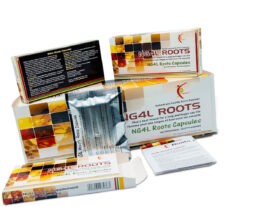 Roots Caps
Roots Caps 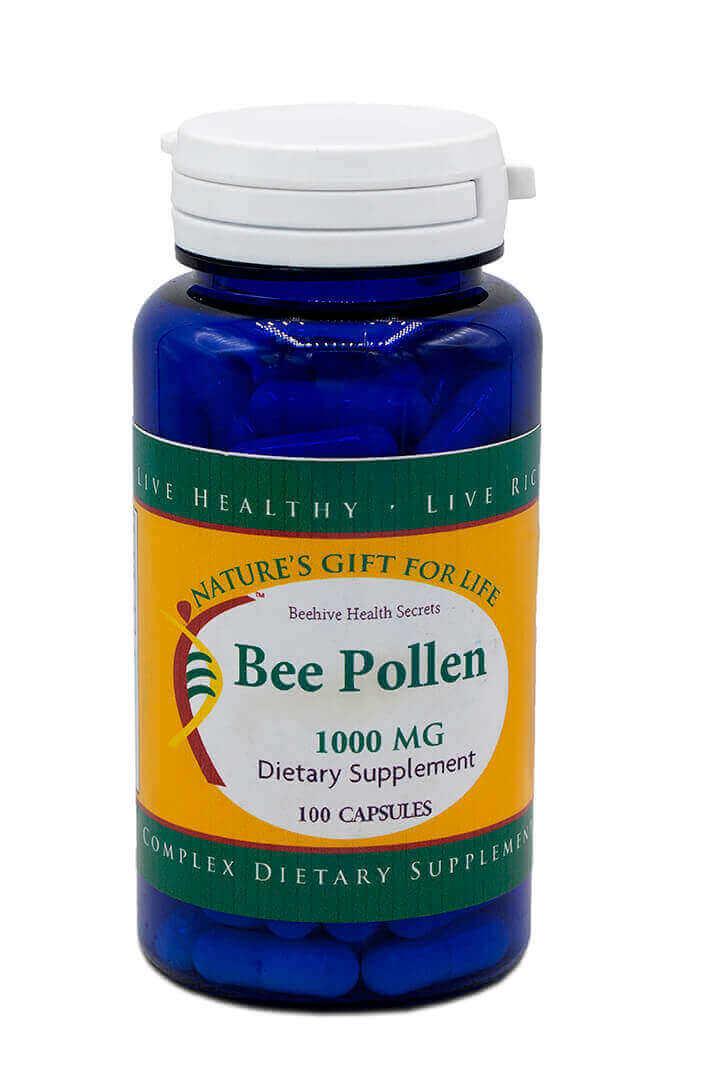
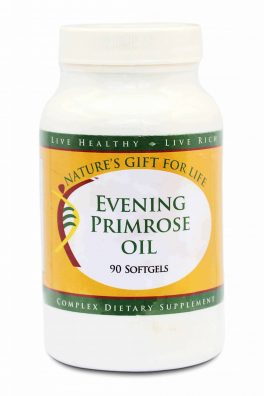
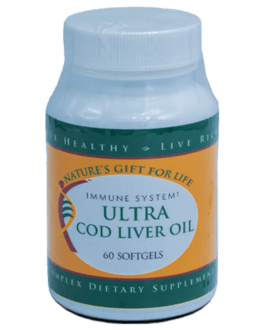
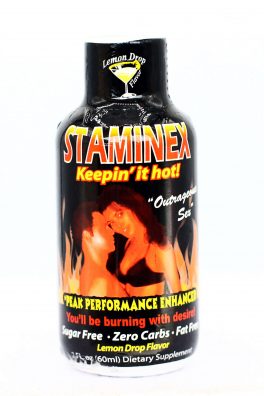
Il n'y a pas encore de critiques.